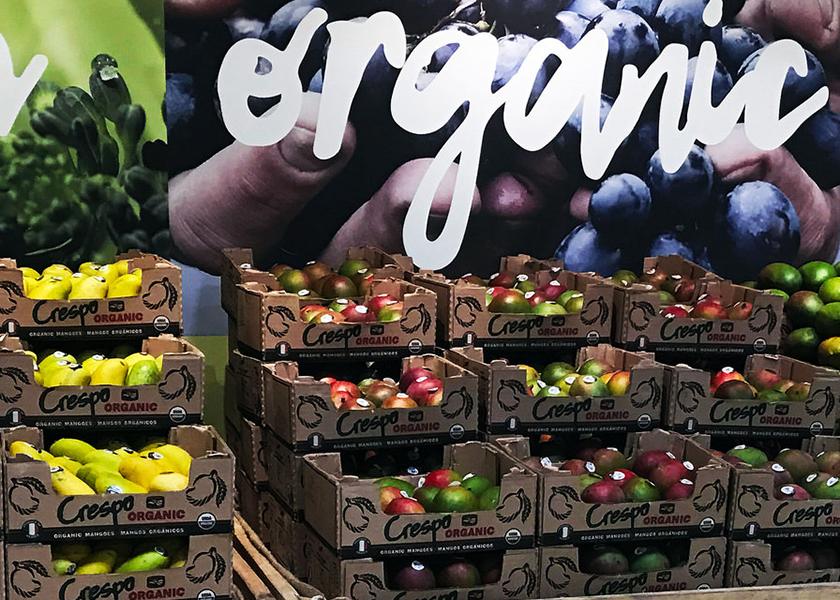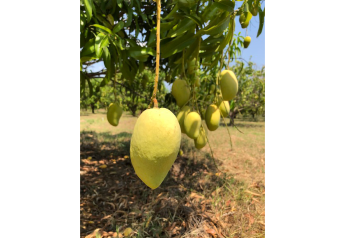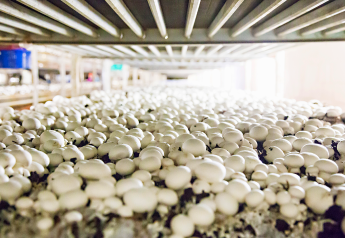What the Organic Trade Association is doing for produce

The Organic Trade Association is always pushing for legislation on climate change and continuous improvement and accountability in organic standards.
But Johanna Mirenda, farm policy director, is also laser-focused on the organic fresh produce industry specifically in two ways.
“Modernizing the system for review of inert ingredients is a priority of the organic industry,” Mirenda said.
That’s one push. The other effort is everything coming up at the Oct. 19-21 U.S. Department of Agriculture National Organic Standards Board meeting in Sacramento, Calif.
OTA, the association for organic agriculture and products in North America, represents more than 9,500 organic businesses nationwide. The board of directors is elected by its members.
What about this review of inert ingredients?
The USDA National Organic Program is beginning a rulemaking process to amend the organic regulations on the types of substances permitted for use as “inert” ingredients, which are formulated along with approved active ingredients in pest-control products.
“Inert ingredients are necessary for the manufacturing of many various forms of pest control products that organic produce growers rely upon when their preventive pest, weed and disease management practices have failed,” Mirenda said. “The organic regulations for permitted inert substances refer to outdated (Environmental Protection Agency) lists.”
In 2021, the National Organic Program will publish an Advanced Notice of Proposed Rulemaking to request comments on options for replacing outdated reference.
The association’s regulatory team and a member task force are preparing comments to ensure continued safety and availability of effective and familiar pest control products. These products are necessary for organic farmers to reliably bring their organic products to market, she said.
Then, there’s the standards board meeting in October, with several items on the docket that affect the produce industry:
- The standards board will consider a petition to prohibit ammonia extract fertilizers. Synthetic ammonia fertilizers are already prohibited, so this petition challenges the allowance of ammonia that is isolated, captured, extracted and/or concentrated from natural sources, such as manure, through physical, mechanical, and/or biological processes that are ultimately classified as non-synthetic;
- The board will vote on proposal to amend the current definitions and restriction on biodegradable mulch; and
- The board will vote on whether to continue allowing substances scheduled for re-review prior to their sunset, or expiration, date in 2023 from the National List. Key items for the produce sector include: peracetic acid as a disinfectant and disease control; ozone gas for irrigation system cleaning; chlorine materials for sanitization; passive pheromone dispensers that contain EPA List 3 inerts; and calcium chloride foliar sprays for physiological disorders.
On that last agenda item, organic producers are invited to fill out the association’s sunset surveys to indicate the necessity of these materials for organic production. The deadline for public comments on its proposals is Sept. 30.
Find the surveys for each substance here.
The association is also lobbying for organic standards to be maintained and improved.
On July 27, some 50 association members representing the entire organic supply chain met virtually with about 30 lawmakers to ensure that the organic sector’s advancement continues.
Introduced in the U.S. House of Representatives earlier in 2021, the Continuous Improvement and Accountability in Organic Standards Act addresses the challenges of organic over the past two decades and provides a clear way to ensure the federal government keeps up with the organic market, according to a news release.
The act provides a framework on how to do this in three ways:
- Require the USDA to clear the backlog of stalled organic standards put forth by the industry and recommended by the National Organic Standards Board;
- Establish a new framework for advancing future organic standards; and
- Ensure the consistent application of new standards from organic certifiers.
The bill is endorsed by more than 55 organic farmers, businesses, consumers and environmental organizations, with a cosponsor list that’s grown to 16 since its introduction.
“The federal regulatory apparatus has fallen behind the evolving organic sector, and has slowed innovation and improvement within the industry,” association CEO and executive director Laura Batcha said in the release. “This legislation corrects the course forward.”







